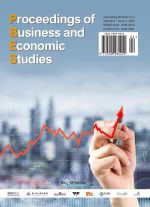Abstract
Achieving mutual benefits in the process of city cluster integration is the core of sustainable regional economic development. This means the core city is driving and avoids the siphon effect. Therefore, it is crucial to analyse which factors affect the differences in integration outcomes. In this paper, for the 28 districts and counties of Xiamen-Zhangzhou-Quanzhou City Cluster, we use FsQCA to analyse the configuration of the impacts of five conditions, namely, urbanization, infrastructure development, level of public services, degree of government intervention, and industrial structure, on the intensity of the districts and counties’ economic linkages. This paper obtains four group conditions of high economic linkage intensity and seven paths leading to low economic linkage intensity. And in this regard, it puts forward suggestions such as constructing a mechanism for coordinated development of regional industries and accelerating the convenient sharing of public services.
References
Liu Z, 2014, A Rethinking of Regional Economic Integration:Policy and Method of Promoting an Integrated
Development in Yangtze River Delta. Journal of Nanjing Normal University (Social Science Edition), 2014(6): 37–46.
Liu S, Hu A, 2011, Transportation Infrastructure and Regional Economic Integration In China. Economic Research Journal, 46(3): 72–82.
Zhang Y, Liu L, Huang S, 2021, Does Regional Integration Promote High-Quality Economic Development of Urban Agglomerations? A Quasi-Natural Experiment Based on the Yangtze River Delta Urban Economic Coordination Association. Studies in Science of Science, 39(1): 63–72.
Du Y, Jia L, 2017, Configurational perspective and qualitative comparative analysis (QCA): A new path for management research. Management World, 2017(6): 155–167. https://doi.org/10.19744/j.cnki.11-1235/f.2017.06.012
Zhou L, Xia L, 2010, Measurement and Comparison of Regional Economic Integration: Evidence from Beijing–
Tianjin–Hebei, the Yangtze River Delta and the Pearl River Delta. Jianghai Academic Journal, 2010(4): 81–87.
Wang Y, Zhang Z, 2021, Digital Economy, Factor Allocation and Level of Regional Integration. Southeast Academic Research, 2021(5): 129–138. https://doi.org/10.13658/j.cnki.sar.2021.05.014
Chen J, 2008, Historical Process and Dynamic Structure of Regional Economic Integration in the Yangtze River Delta. Academic Monthly, 40(8): 79–85. https://doi.org/10.19862/j.cnki.xsyk.2008.08.011
Cao J, Tong J, 2017, Economic-Geographical and Social-political Determinants of Regional Economic Integration. Nankai Economic Studies, 2017(6): 20–39. https://doi.org/10.14116/j.nkes.2017.06.002
Peng Y, 2009, Regional Economic Integration, Local Government Cooperation and Administrative Power Coordination. Reform of Economic System, 2009(6): 138–141.
Ma R, 2019, Research on Policy Supply of Regional Integration in the Yangtze River Delta and Its Selfexamination. Academic Forum, 42(5): 114–123. https://doi.org/10.16524/j.45-1002.20191125.001
Guo J, Xu Y, Wang M, 2016, Financial Externalities, Technological Externalities and the Construction of Urban Agglomerations in China. Economic Perspectives, 2016(6): 74–84.
Liu J, Yue S, 2020. Regional Economic Integration in the Yangtze River Delta from the Perspective of Cyclic Synergy: Time-varying Measures and Determinants. Nanjing Social Sciences, 2020(3): 54–63. https:// doi.org/10.15937/j.cnki.issn1001-8263.2020.03.008
Ma Z, Li W, Wang Q, 2022, Does Financial Development Promote Regional Economic Integration? Evidence
from the Yangtze River Delta. Journal of Harbin University of Commerce (Social Science Edition), 2022(2): 43–57.
Wang L, Li C, 2018, Market Integration, Urbanization and Regional Economic Growth: Empirical Research on 16
Cities of Yangtze River Delta. Modern Urban Research, 2018(3): 81–87.
Xie F, Yuan L, Fu W, 2021, How Can Yangtze River Delta Realize High-quality Market Integration? From the View of Opening-up,Upgrading of Industrial Structure and Financial Development. Reform, 2021(6): 112–124.
Chen L, Yu M, Liu Z, 2009, Regional Cultural Assimilation and Economic Integration in Yangtze River Delta. China Soft Science, 2009(11): 53–63.
